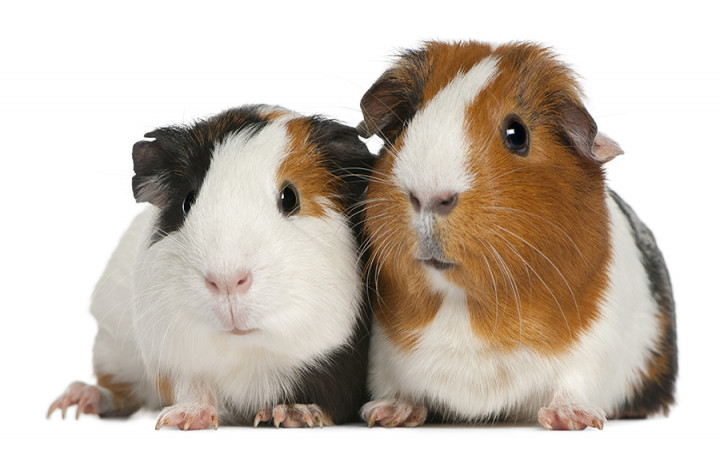Today’s Wonder of the Day was inspired by Julie from Norcross, GA. Julie Wonders, “Are guinea pigs really pigs?” Thanks for WONDERing with us, Julie!
Do you have a pet at home? As pet owners know, sharing your home with a special animal can make life so much better.
Nothing turns a frown upside down quite like the wagging of a dog's tail. If you have a dog as a pet, you understand why they're often called "man's best friend." Cats are also cute and cuddly. Even fish are entertaining to watch and take care of.
Dogs, cats, and fish aren't the only good pets for kids, though. How about something small and fuzzy that squeaks when it's happy? What are we talking about? The guinea pig, of course!
If you use your scientific reasoning abilities, you might think that the humble guinea pig is a type of pig that originated in Guinea. Unfortunately, you would be wrong. The guinea pig is not a pig at all, and it did not come from Guinea.
Instead, guinea pigs are rodents. Their scientific name, Cavia porcellus, means "little pig" in Latin. Based upon their scientific name, they're also sometimes known as cavies. Their resemblance to pigs is limited to their slightly-pig-like shape, tendency to spend a lot of time eating, and occasionally grunting a bit like a pig.
Rather than Guinea, guinea pigs are thought to have originated in South America. Experts believe they may have been domesticated for food by Andean tribes as early as 5000 B.C. Today, all guinea pigs are domesticated, so they no longer exist in the wild.
The "guinea" part of their name may have come from the price of an animal in 16th-century England: one guinea. Others believe the animals came to Europe via ships from either Guyana in South America or Guinea in West Africa, thus leading to their name.
Guinea pigs even have identity problems in other languages. Germans know them as meerschweinchen, which means "little sea pigs." The French call them lapins de Barbarie, or "Barbary rabbits," while the Portuguese call them porchitas da India, or "little pigs from India."
Whatever the origin of their name, guinea pigs have become popular pets around the world. They can be found in a wide variety of breeds with different colors, patterns, and textures. They're usually eight to ten inches long and weigh two to three pounds.
Guinea pigs make great pets, because they're very social and thrive on human affection. Primarily active in the morning and evening, they like to eat, groom themselves, and explore their surroundings. As herbivores, guinea pigs love fresh fruits and vegetables, although most pet guinea pigs enjoy a diet consisting mostly of processed pellets made out of alfalfa or timothy hay and special nutrients.





